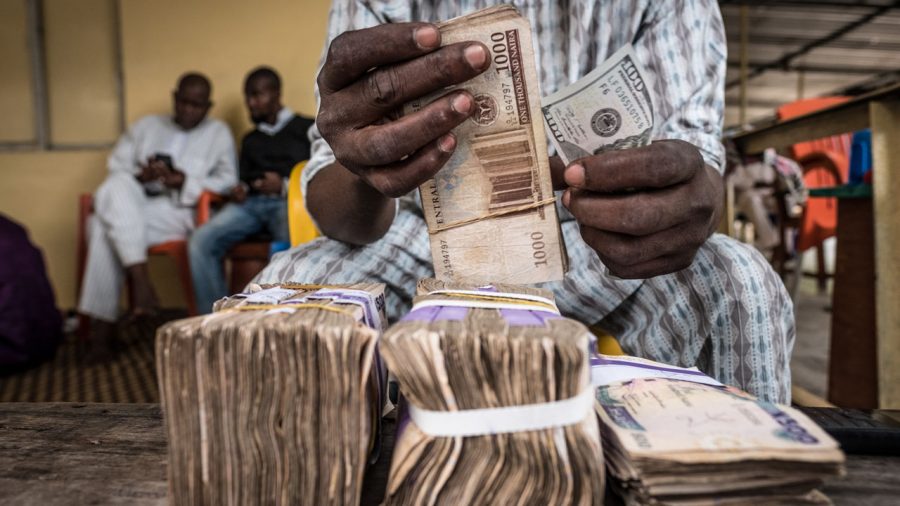The 137th monetary policy meeting which was held on 27th July 2021 concluded with the Central Bank of Nigeria taking an aggressive stance to discontinue the supply of FX to Bureau De Change operators (BDCs) in order to clampdown on what Godwin Emefiele (CBN Governor) termed illegal activities being perpetrated by BDCs when foreign exchange is supplied to them.
Reason for the ban
The CBN governor outlined that the main angst with the BDC operators was that the BDCs continued to create artificial FX scarcity in a bid to seek “abnormal” profits thus introducing risks to the Nigerian financial system.
He further noted several behaviours which were unhelpful to CBN’s price stability objectives such as rent-seeking BDC operators only interested in large margins, dollarization of the Nigerian economy, subversion of the cashless policy, common ownership of several BDC by the same owners to obtain multiple FX, and ‘regrettably’ international organization and embassy patronage of illegal FX dealers.
How will the ban impact retail FX customers?
Nairametrics spoke with some financial analysts to assess the likely impact of this unanticipated action from CBN, and the new policy has been received with mixed reactions with varying degrees of concern regarding the likely impact of this new policy on the Nigerian economy.
According to Mr Ugo Obi-Chukwu, Chartered Accountant and Founder of Nairametrics, “the most pressing implication would be the immediate reduction in the number of retail outlets for the supply of dollars coupled with more logistical issues which are likely to create a semblance of scarcity unless the banks can automate the way FX requests are handled.
Specifically, the Governor mentioned that there are over 5,000 BDCs, this is in addition to the various bank branches all supplying FX to Nigerians. Therefore, simply eliminating BDCs automatically puts more pressure on existing bank branches to meet the uptick in footfall.”
Therefore, bank branches will experience a sharp rise in demand from customers as orders previously placed with BDCs now get re-routed to Bank tellers/ FX desks who will need to be adequately staffed to cope with the increased retail administration required. Therefore, clients should expect to experience some inconvenience as they place FX orders and go to pick them up from their branch.
The CBN will need to move fast to smoothen out administrative bottlenecks, as the ban is posed to create supply-chain challenges that may aggravate the FX crises.
The additional point of creating a whistle-blower feature whereby customers should report banks who do not fulfil FX orders may likely add to the confusion in the near term as the new policy is rolled out.
From an implementation perspective, Mr Obi-Chukwu noted that the CBN in collaboration with Nigeran banks had recently shown capabilities of operational innovation for new policies. An example is the recent Naira4Dollar incentive which had a largely seamless implementation.
Perhaps, this is an area where FinTech solutions on retail FX orders and settlement delivery will come in handy as the banks will need to automate retail FX since they will have to deal with footfall uptick, ensure fulfilment and smooth out bottlenecks; especially, now that the CBN is mandating they implement that Automation.
Victor Aluyi, Vice president and Head of Portfolio Management at Comercio Partners Asset Management opined that any perceived reduction of supply may lead to the deprecation of the naira, as speculators may take this as a sign that FX inflow challenges are worsening.
¨I feel that whatever challenges faced by the BDC in terms of speculation and graft would be moved to the commercial banks rendering the policy ineffective. What we need is increased FX supply, not a reduction,” he reiterated.
Ultimately, whilst it seems a noble idea to centralize requests and sales of FX via banks, if the operational aspects of this initiative are abused, customers may resort to black markets to fulfil orders thereby dissolving the intended benefits of the CBN’s actions.
Finance Professional, Kalu Aja also stressed the effects it will have on the naira and the 44 banned items by the CBN, stressing “Where will importers get their dollars from?” In other words, he expects supply constraints to continue to drive depreciation despite the change of distribution channel from BDCs to banks.
Some analysts praised the CBN’s move postulating that it is a step in the right direction but expected prices to increase in the parallel market.
Zeal Akaraiwe expressed that in his opinion, the move is the right one and was long overdue, however, the timing and execution of this directive/policy/announcement by the CBN, may expose huge gaps that could create unintended consequences.
As a baseline, Nigerian banks have the branch network to facilitate retail FX sales and with the advent of mobile technology, the usefulness of BDCs to the economy is immaterial. In other words, the BDCs are providing a service that banks can easily subsume.
Therefore, redirecting transactions to bank branches instead of the BDCs should not cause any long-term ripples….except with two caveats:
The first caveat is timing. This is the beginning of the summer holidays when covid-related travel restrictions have been eased so we expect an increase in demand by retail users for FX which the banks now need to deal with.
The second caveat is perception. There is already an FX squeeze where many consumers have been in queues waiting for FX supply and so the market sentiment is skewed against the Naira.
There is a risk that the impact of the announcement will be exaggerated and if market participants perceive this as a negative for supply, it could induce panic and drive rates up in the immediate term. Ideally, the CBN’s announcement to re-direct FX supply to banks rather than BDCs should have been preceded by CBN increasing supply to banks to bolster confidence and therefore, dampen the panic effect of the announcement.
In summary, most analysts agreed that the elimination of the BDCs should NOT be a major cause for alarm if the CBN and banks can get their acts together to ensure this announcement does not create administrative bottlenecks or cause panic buying. Albeit, that the elimination of BDCs may not be the silver bullet to halt the ongoing decline of the Naira which is partly attributable to ongoing FX supply issues in the overall economy.













.gif)







How did we get to over 5,000 BDC’s in the first place?
what regulations does the CBN have in place on BDCs to checkmate their activities?
what happens to the around 35M naira deposits that BDCs have with the CBN, which most have not recouped?
these are issues and while the CBN is point 1 finger at the BDCs, 4 fingers are pointing back at the CBN
BAN OF BDC’S ………Good Development.
The effect of the policies on BDC is that staffs of the BDC will no longer be needed as a result creat more people to be unemployed.
Also these will creat more scarcity which will result in the increase in rate of exchange.
The policy tend to creat more proble than solving
There won’t be a problem at all if the supply to banks is heavy and operations monitored closely. However, the horse should pull the cart as implied in the quote below
“Ideally, the CBN’s announcement to re-direct FX supply to banks rather than BDCs should have been preceded by CBN increasing supply to banks to bolster confidence and therefore, dampen the panic effect of the announcement.”
There won’t be a problem if the FX supply to banks is heavy and operations closely monitored. However, the horse should pull the cart as implied in the quote below
“Ideally, the CBN’s announcement to re-direct FX supply to banks rather than BDCs should have been preceded by CBN increasing supply to banks to bolster confidence and therefore, dampen the panic effect of the announcement.”
In the end the truth has revealed himself
Do you think this will cause the naira to fall? People are rushing to buy dollars in order to make a profit when the naira falls. what’s your take on this, Ubah?
It is still business as usual, the bdc sellers are still on the streets.
They can buy dollars as retailers from banks and still sell for profit.
The new policy just created a new lucrative black market for anyone who understands fx, the short time implication is that naira might depreciate against the dollar, leading to more inflation, long time effect, there is none, the union of bdcs will meet with the cbn and agree with their demands, so it will just be a temporary ban and back to business.
you are absolutely correct my brother
Well i’ll agree if you say they ( union of bdcs) might come to terms with CBN and resume business as usual. On the contrary, i don’t think its wise to buy from bdc when the bank can sell cheaper; only if its a matter of urgency though.
Why not implement a new and effective FX system with banks before disengaging BDCs? The truth is that most Nigerians that need FX are not necessary traveling or trying to pay school fees. Most FX buyers are small business owners so the I am not sure how the banks can be effective in solving this dollar distribution debacle.
The clueless CBN never ceases to amuse. This action is vintage CBN, always blowing ineffective smoke. The banks are worse than BDCs when it comes to FX abuse and corruption in FX management. The banks do this knowing they have CBN cover since all are involved in the FX racket; CBN, banks and BDC. Try sourcing FX from banks (despite the CBN noise) and you know that it “is easier for a camel to pass through the eye of a neddle “ than get the FX. They will put all sorts of road blocks and the FX ends in the black market. Mark my words, by December 2021, it will be 600 naira to 1 dollar.
My brother you are the only person here making sense at the end that is why i often say why all these so called economist should once in a while go to street and get primary data now how much is dollar to naira now. You people left trauma in the lives of these bdcs whom you accused I hope history will be kind to us all